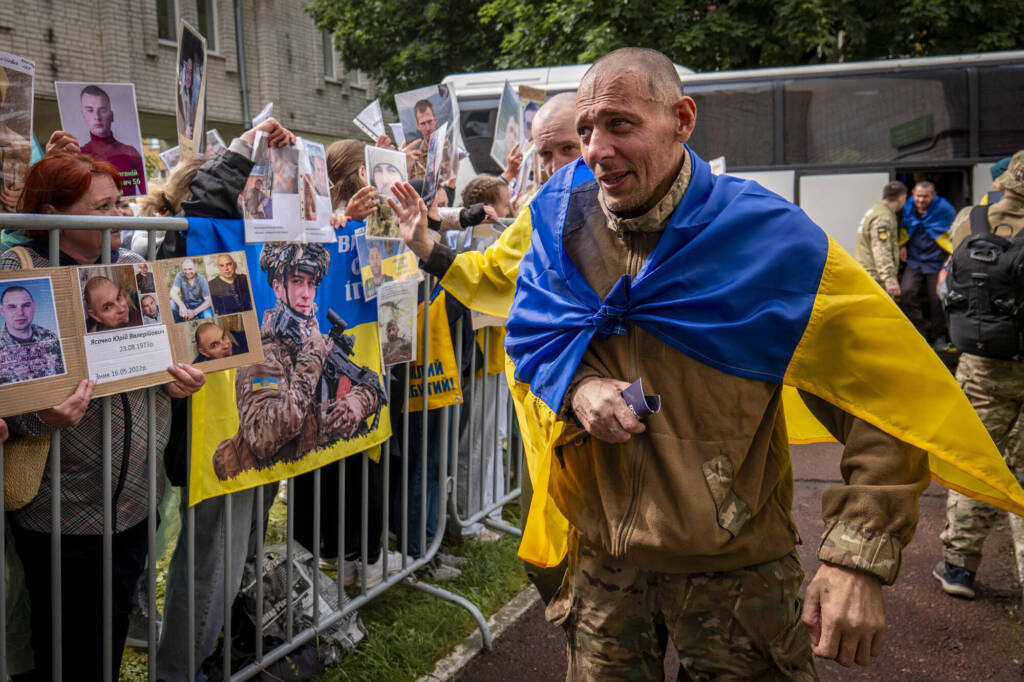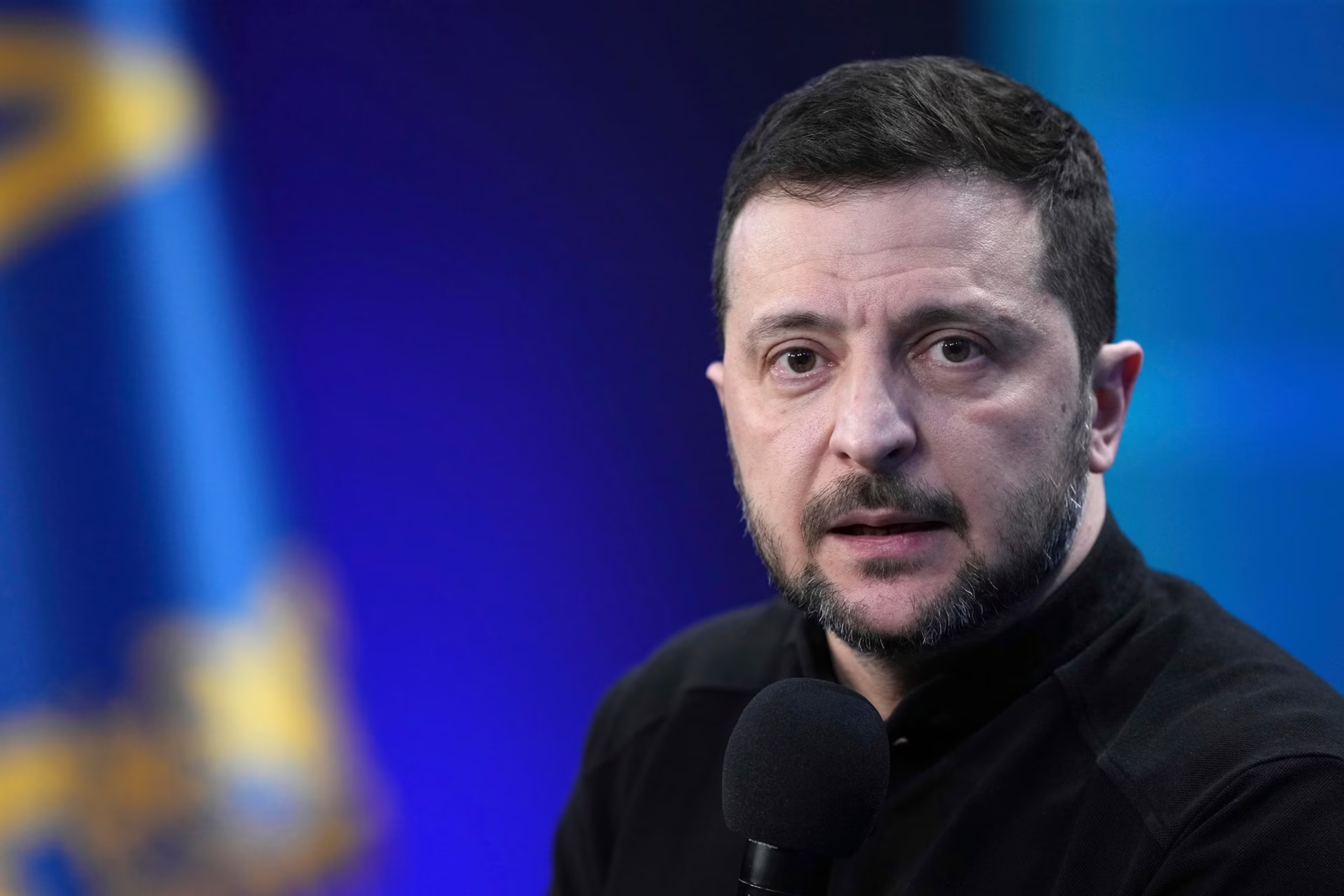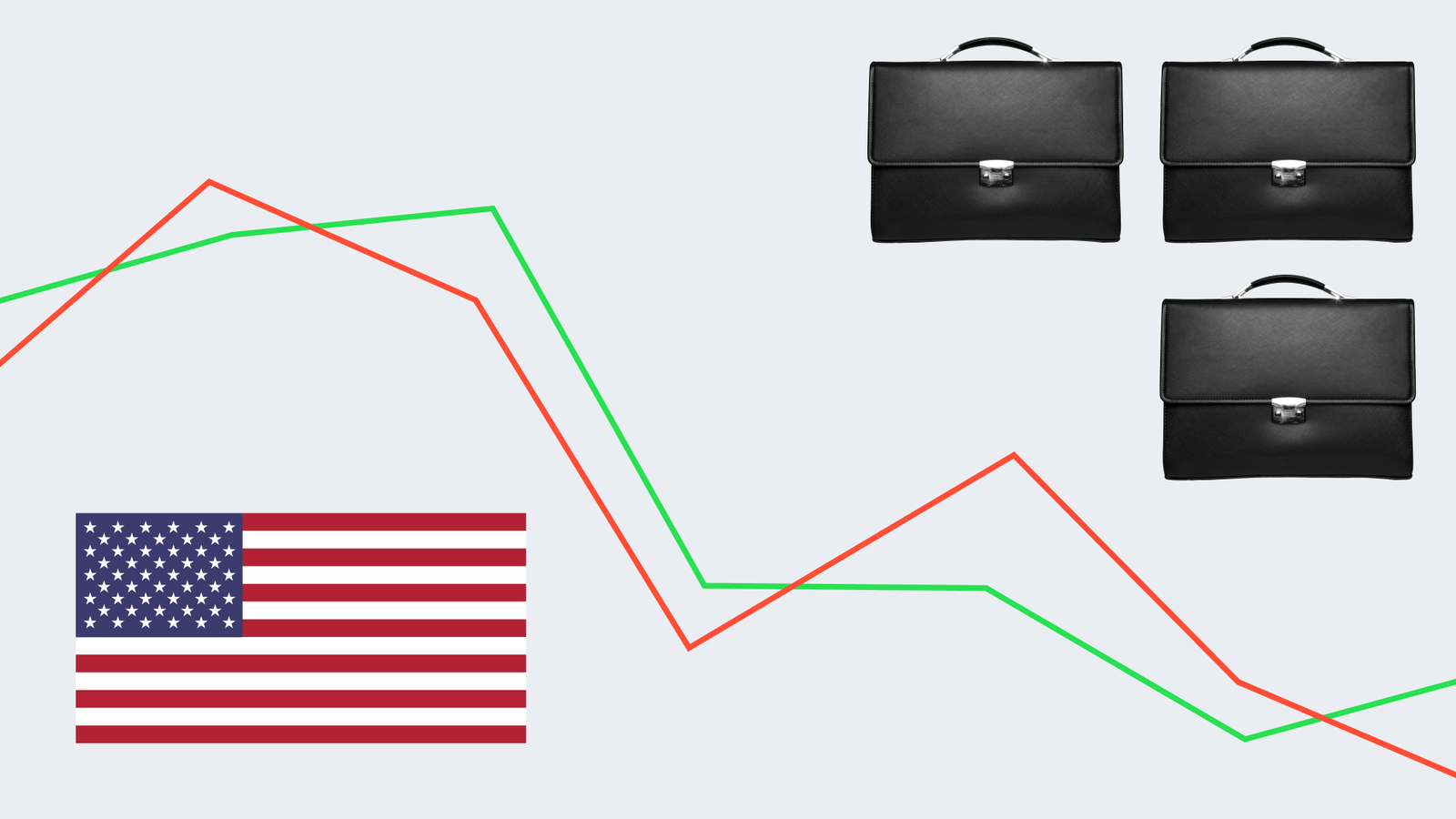Ukraine War, Day 1,215: Zelenskyy Slams Russia’s Mishandling of Soldier Remains, Warns of Western Tech Aiding Moscow

Ukrainian President Volodymyr Zelenskyy has accused Moscow of gross disorganization in the handling of prisoner-of-war exchanges and the repatriation of its own dead soldiers.
In a striking claim on Saturday, Zelenskyy said that Russia recently returned to Ukraine the bodies of at least 20 of its own soldiers during exchanges. Some of the corpses reportedly still had Russian passports, undermining Moscow’s assertion that the deceased were Ukrainians.
“They threw the corpses of their citizens at us. This is their attitude toward war, toward their soldiers. And this is already documented,” Zelenskyy said.
“Sometimes these bodies even have Russian passports,” he added, further condemning Russia’s military bureaucracy.
Among the dead, Zelenskyy noted the presence of an Israeli mercenary who had been fighting on behalf of Russia—though Ukrainian officials withheld the identities of the deceased.
Western Technology Fueling Russia’s War Effort, Zelenskyy Claims
Zelenskyy also made pointed remarks about Western companies allegedly supplying Russia with machine tools used in weapons manufacturing. He named firms from:
- Germany
- The Czech Republic
- South Korea
- Japan
- China (the majority of the suppliers)
- And one U.S.-based company
“We have passed on all this information to our partners,” Zelenskyy said, urging governments to impose sanctions on the businesses involved.
Zelenskyy Urges Defense Funding, Talks Joint Arms Production
In a call for stronger military support, Zelenskyy appealed to Ukraine’s allies to dedicate 0.25% of their GDP to aid Ukrainian weapons production. He also revealed that Ukraine plans to sign international agreements this summer to begin exporting weapons technologies.
Ukraine is currently in talks with:
- Germany
- Denmark
- Norway
- Canada
- The United Kingdom
- Lithuania
Additionally, Zelenskyy announced planned personnel changes in Ukraine’s diplomatic and governmental institutions to strengthen national resilience. No timeline was given for the restructuring.
Belarus Frees Opposition Leader Amid Signs of Western Outreach
In a notable geopolitical development, Belarus released opposition leader Siarhei Tsikhanouski after more than five years of imprisonment. The release is widely viewed as an effort by President Alexander Lukashenko to reduce his political isolation from the West.
The move came just hours after Lukashenko met with former U.S. National Security Advisor Keith Kellogg, now acting as an envoy for President Donald Trump, in Minsk.
Lukashenko has faced sustained Western sanctions and condemnation for crushing pro-democracy protests in 2020 and supporting Russia’s invasion of Ukraine by allowing Moscow to use Belarusian territory for troop deployments.
Battlefront Updates: Intensifying Strikes in Donetsk and Northern Ukraine
Fighting remains intense across multiple fronts:
Eastern Front (Donetsk Region):
- Russian forces have reportedly captured another village in their slow push westward.
- Sloviansk and Kramatorsk were hit by Russian strikes.
- One person was killed and three injured in Sloviansk.
- In Kramatorsk, one person was trapped under rubble and several others were injured.
Northern Front (Kharkiv Region):
- Kupiansk, a strategic city, is under threat as Russian troops close in.
- The village of Moskovka near Kupiansk was captured by Russian forces, the Russian Defense Ministry claimed.
Drone Strikes:
- In the north, a drone attack in Nizhyn killed one person and damaged infrastructure, according to Ukrainian officials.
Ongoing Deportations in Occupied Territories
According to reporting by The Guardian’s Shaun Walker in Zaporizhzhia, Russia continues to carry out forced deportations of Ukrainian civilians from occupied areas—part of what Ukraine describes as a systematic “cleansing operation.”
Observers warn that these deportations may intensify if U.S.-led efforts to push both sides toward a peace deal result in the freezing of current frontlines, effectively recognizing Russia’s territorial gains over the past three years.



